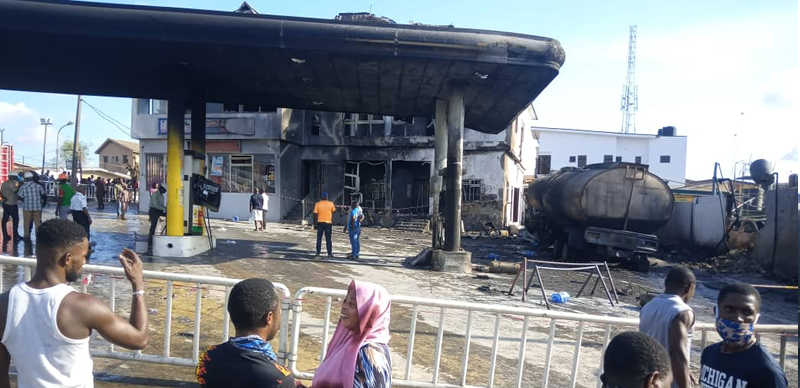
The Federal Government, on Wednesday, directed oil marketers who operate filling stations to report fire incidents in their premises within 24 hours of such occurrence or face sanctions.
It gave the directive through the Nigerian Midstream and Downstream Petroleum Regulatory Authority, stressing that it would impose sanctions on erring operators ranging from fines to suspension of operation/revocation of licences.
The Director, Health, Safety Environment and Community Department, NMDPRA, Nsikak Bassey, disclosed this during a meeting with the safety team of NNPCL Retails.
He said in a statement issued in Abuja by the authority, that reports of such incidents must reach the Chief Executive, NMDPRA, Farouk Ahmed, within 48 hours.
He was quoted as saying, “In our effort at preventing fire outbreaks within filling stations across the country, the authority expects timely reporting of incidents to the nearest NMDPRA office within 24 hours and the authority’s Chief Executive within 48 hours.
“Managements of stations must refrain from tampering with evidence after incidents and must develop and strictly implement Standard Operating Procedures for all operations such as discharging and dispensing.
“They must also provide adequate firefighting equipment for all facilities as well as enlist staff in training.”
Bassey said operators of facilities must ensure that integrity tests were conducted on underground storage tanks as enshrined in Environmental Guidelines and Standards for the Petroleum Industry in Nigeria, 2018.
The director charged the NNPCL Retails team to ensure it ascertained the integrity status of a facility before takeover or acquisition.
He revealed that NNPC retail contributed 18 per cent of incidents in the past three years to operational hazards and also caused 14 per cent of incidents in 2022 alone, adding that the NNPCL filling stations had the second highest number of incidents in 2022 and 2023.
Generally, Bassey stated that there was a widespread non-reporting of incidents by operators, as marketers sometimes failed to ground (earthing) underground storage testing and vehicle tanker before discharging.
Concerning NNPCL Retail, Bassey said the company often failed to carry out pre-requisite audits and knowledge of the integrity status of retail outlets upon taking over or acquisition.
He frowned at the failure of NNPCL Retail to determine the quality of the soil, whether it’s corrosive or non-corrosive before tank burial, as well as the company’s failure to report observed leaks from the underground storage tanks.
In his response, General Manager, Health, Safety, Security, Environment and Quality, NNPCL Retail, Oyet Gogomery, said the company was treating safety issues with utmost care and adhered strictly to safety guidelines.





